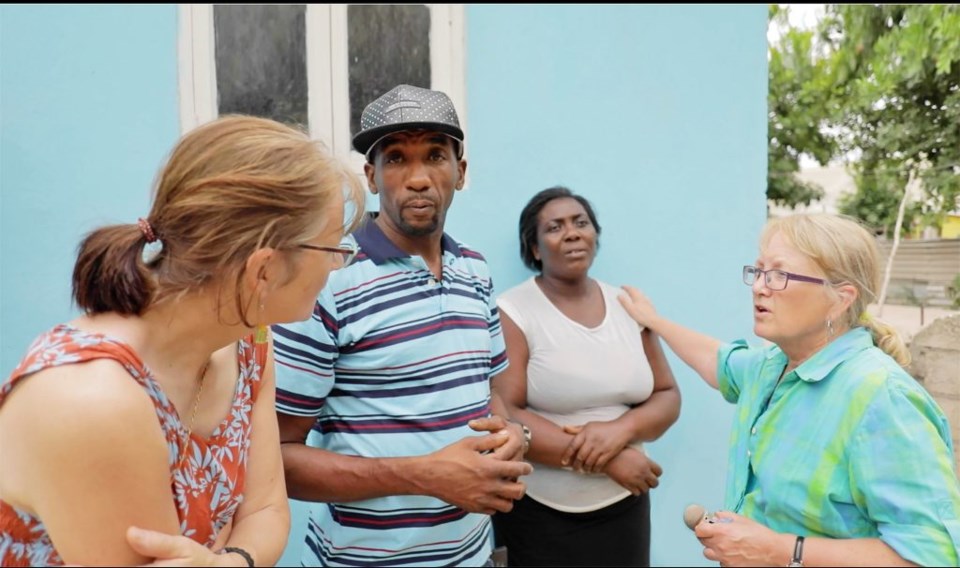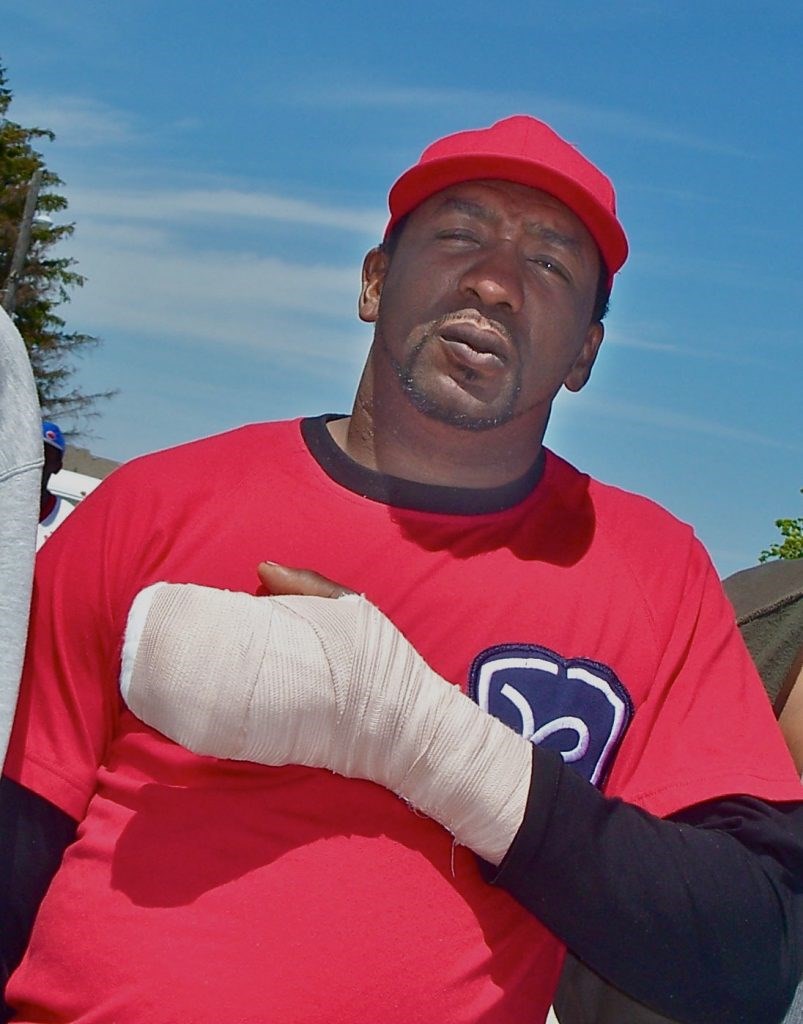
How do you write a eulogy for a dear friend who has not yet passed from this world, a man whose life was ruled by his magnanimous heart and a faith that pressed him into serving others with a joie de vivre that couldn’t help but inspire?
According to Workplace Safety and Insurance Board (WSIB), nearly a third of farm injury claims that require treatment are migrant workers, but only six per cent are recognized by the WSIB where there is permanent injury. Here is one of these workers’ stories. Jeleel Stewart grew up in a rural area in Manchester, Jamaica, attending the local school and enjoying a carefree childhood with a loving extended family. His father was gone for six to eight months of the year, cutting cane on the farm work program in Florida.
It was a dangerous job, and one year he didn’t return. Jeleel’s mother was informed that her husband did not survive a serious accident at work. The family was cut off from any further information, received no compensation and could not afford a lawyer. At 13, Jeleel was forced to quit school and became the breadwinner for his family. Years later, in 2007, he applied to join the Seasonal Agricultural Workers Program in Canada as a way to support his wife Suzana and four children. He arrived in early spring in Niagara-on-the-Lake and plunged into his new job with great enthusiasm, easily making friends with his new coworkers.
We met on a Sunday night at the Caribbean Workers Outreach Project church service at Bethany Mennonite Church, when he jumped up to join the music team for a post-service singalong. We connected a few more times over music and family dinners before he returned home in November.

Six months later my friend Jodie Godwin and I took him up on an offer to meet his family in St. Catherine, Jamaica. We received a warm welcome, with extended family and neighbours joining in on the feast and the lively music that followed. The respect and affection for Jeleel was obvious. Although he was a man of large stature, he had the nurturing heart of a mother hen with the children and teens in the neighbourhood.
We looked forward to his return to Niagara in spring. We could never have imagined the coming turn of events which radically impacted Jeleel and his family’s life for the 15 years that followed, and ours as well. Only a few weeks after his return to the farm, he was working on a loading dock. An error by the forklift operator caused it to slip and crush Jeleel’s hand, severing his nerves and tendons.
He was given a local anaesthetic but remained fully conscious and watched the three-hour surgery that followed on a monitor screen. The following weeks were agony, the pain medication providing little relief. He had no money for food, as sick benefits through Employment Insurance were only available after an eight-week period. He remained alone in the bunkhouse during the day for the next few months, unable to prepare meals or enjoy a diversion of any kind to occupy his mind.
The community provided him with groceries until he returned home in August with assurances from the Jamaican liaison officer that he would receive physiotherapy and sick benefits from WSIB. We gathered donations and with the help of his coworkers, shipped a barrel full of necessities and dry goods to help his family get through the following winter. The sick benefits were barely enough to feed the family but there was hope that the physiotherapy in Kingston would restore at least partial use of his hand.
In 2010 he received a letter from WSIB informing him that because the damage to his hand was considered permanent by the doctor, he would no longer receive benefits or therapy. In a process known as deeming, WSIB stated that because there was a cashier job available at a gas bar in Niagara-on-the-Lake which he could perform with one hand, he would no longer qualify for assistance.
We were stunned. Surely it was a mistake. We assumed WSIB had made an obvious error as Jeleel lived in Jamaica, not in Niagara where he could apply at the local gas station. We knew there was no chance that the Canadian government would issue a work permit for a cashier job.
It has now been 12 years. We have run out of time. We have run out of hope. Godwin and her husband Dave Parker have provided practical support for the Stewart family during these difficult years. Their two children, Leah and Sam, were just youngsters when the family hosted a farewell get together for Jeleel at their home in 2008. They are now adults and have visited Jeleel and his family on multiple occasions in Jamaica. They started a GoFundMe last year to try to ensure that the two youngest children can attend school.
Jeleel has developed diabetes in recent years because the family cannot afford fresh vegetables and protein necessary for good health. He is presently in the hospital for the second time in two weeks. His face is hollow, his body a mere shadow of the physically strong man he once was. His diabetes is out of control and he cannot afford the necessary medication. His heart is failing.
We hope and pray that help does not come too late. WSIB recently issued a press release boasting of its surplus of $1.4 billion. Jeleel is one of many seriously injured farm workers whose suffering has allowed others to benefit from rebates and dividends.
On March 20, people gathered worldwide in parks, churches, and streets to commemorate the International Day for the Elimination of Racial Discrimination. In the little village of Virgil about 50 people gathered across different faith communities, immigration status, and ages to take part in a walk through the village, affirming the full humanity of our migrant, refugee, and racialized neighbours.
We joined them in honour of the Stewart family’s struggle for survival. Farmworkers are more than migrant workers. That is why we chose to “walk the walk.”